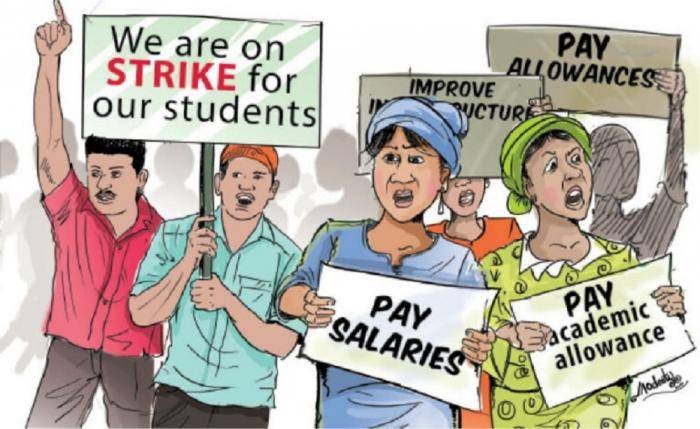
The court, presided over by Justice P. I. Hamman, approved the suit for further consideration, despite the fact that the Socio-Economic Rights and Accountability Project, SERAP, asked to be included as an interested party in the case.
SERAP, through its lawyer, Mr. Ebun-Olu Adegboruwa, SAN, informed the court that it recently filed a similar complaint in order to compel the Federal Government to honour the deal it reached with the striking varsity lecturers in 2009.
“We filed a similar complaint on September 8, 2022 requesting the court to compel the Federal Government to honour an agreement it willingly signed into with ASUU,” Adegboruwa said, adding predicated SERAP’s joinder motion on the need to avoid duplicity of outcomes affecting the industrial conflict.
However, Tijjani Gazali (SAN), the counsel for the Federal Government in the suit, objected Adegboruwa’s plea on behalf of SERAP to consolidate the claims, claiming that “SERAP’s application was premature as the case was billed for mention on Monday.”
Similar Posts:
In response to the points made by counsel for SERAP and the Federal Government, ASUU’s attorney, Femi Falana (SAN), stated that he was aware of the lawyers’ efforts to file court papers in the suit on Monday.
Meanwhile, in his decision on the SERAP’s joinder application, Justice Hamman concurred with the Federal Government that the case was not ready for consolidation.
He stated that he was just presiding as a vacation judge because the case will be assigned to another judge for adjudication following the court’s annual holiday, ordered the parties to file and exchange court documents, and delayed the case until Friday, September 16, 2022.
Falana told reporters following the court proceedings that the Nigerian government frequently employs “dilatory measures that have a way of prolonging strikes.”
Falana, along with ASUU president Emmanuel Osodeke and other striking lecturers’ officials, referred to the resident doctors’ conflict with the government last year, which ended in a suit before the industrial court.
“This is not the first time the government has used these somewhat dilatory techniques to prolong the strike.” We were here last year when the resident doctors went on strike, and it was the same approach.”
Adegboruwa, for his part, told journalists that the Federal government had abdicated its responsibilities to fund public colleges, necessitating the filing of SERAP’s suit.
The Federal Government had taken the union to court to investigate the legality or otherwise of the ongoing prolonged strike by ASUU leadership and members, as well as to interpret the provisions of Section 18 LFN 2004, particularly as they apply to the cessation of strike once a trade dispute is apprehended by the Minister of Labour and Employment and conciliation is ongoing.
In the September 8 suit, FG requests that the court, among other things, determine whether ASUU members are entitled to emoluments or “strike pay” during their strike, which began on February 14, 2022, in light of national law as provided in Section 43 of the TDA and the International Labour Principles on the right to strike, as well as decisions of the ILO Committee on Freedom of Association on the subject.
“Determine whether ASUU has the right to strike over disputes such as this one by compelling the Federal Government to use its own University Transparency Accountability Solution (UTAS) in the payment of its members’ wages as opposed to the Integrated Payroll and Personnel Information System (IPPIS) universally used by the Federal Government in the nation for the payment of wages of all its employees in the Federal Government Public Service of Nigeria.”
It should be noted that ASUU began a four-week strike on February 14 and has proceeded to extend it as talks with the administration have failed. ASUU announced an indefinite extension of the strike on August 29, accusing the government of insincerity.


